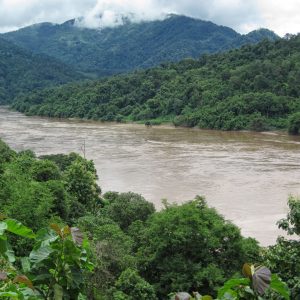The Stream, November 8: Oil Spill In Venezuela Prompts Drinking Water Deliveries
The Global Rundown
Authorities in northern Venezuela delivered drinking water to communities Monday in response to an oil spill. United Nations climate talks opened in Morocco this week, bringing attention to the plight of Africa’s farmers. Finland announced that investors may soon be found for the country’s largest nickel mine, which has faced financial and environmental problems. England’s white chalk cliffs are eroding much more quickly than in the past, a trend that could accelerate due to storms and sea level rise. A lawsuit in Washington state contends that open coal trains are polluting rivers and lakes.
“When we were kids the mountains had snow on them until at least June, sometimes even all year. We had ample underground water sources. We used to have to dig about 4m down to find water – now it can be [many times deeper]. How can we irrigate our crops with that?” –Mohammed Ibrahimi, a farmer in Morocco, where government officials say rainfall has declined 15 to 20 percent. Morocco is the host of the United Nations COP22 climate talks that kicked off on Monday, and the country hopes to bring attention to the effect of climate change on African agriculture. (Guardian)
By The Numbers
25,000 barrels Amount of oil that reportedly spilled from a pipeline in Venezuela’s Anzoategui state. The pipeline operator announced Monday that it is supplying drinking water to communities within a 50-kilometer radius, but released few details about the spill. Reuters
$553 million Amount Finland’s government has spent to keep the country’s largest nickel mine open since it took ownership of the mine last year. Environmental problems at the mine, including a leak of wastewater that contaminated nearby rivers and lakes, played a role in its financial troubles, as well as the government’s decision to intervene. Reuters
Science, Studies, And Reports
The white cliffs of England have eroded at a rate of 22 to 32 centimeters a year over the past 150 years, a tenfold increase from the rate of erosion over the previous 7,000 years, according to a study published in the Proceedings of the National Academy of Sciences. Researchers say the increase is likely attributable to beach management, which exposes some cliffs to waves, and could get worse in the future due to sea level rise and storms linked to climate change. Guardian
On The Radar
A lawsuit in the U.S. District Court in Seattle contends that the coal dust and debris falling into waterways from uncovered train cars is a violation of the federal Clean Water Act. If the environmental groups behind the lawsuit prevail, the case could affect how coal and other materials are transported by rail across the country. The Seattle Times
A news correspondent for Circle of Blue based out of Hawaii. She writes The Stream, Circle of Blue’s daily digest of international water news trends. Her interests include food security, ecology and the Great Lakes.
Contact Codi Kozacek




